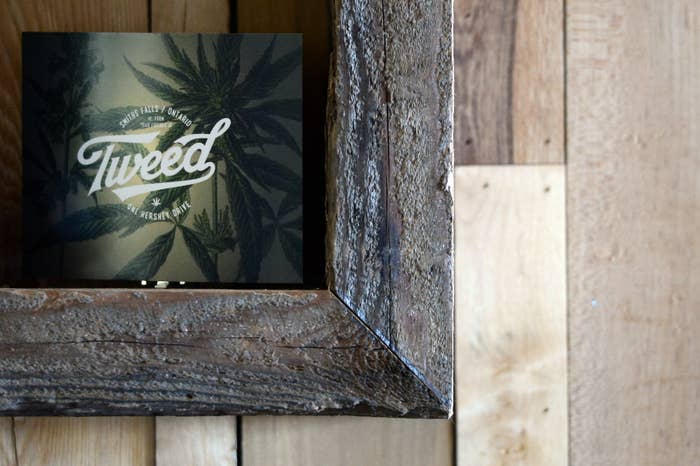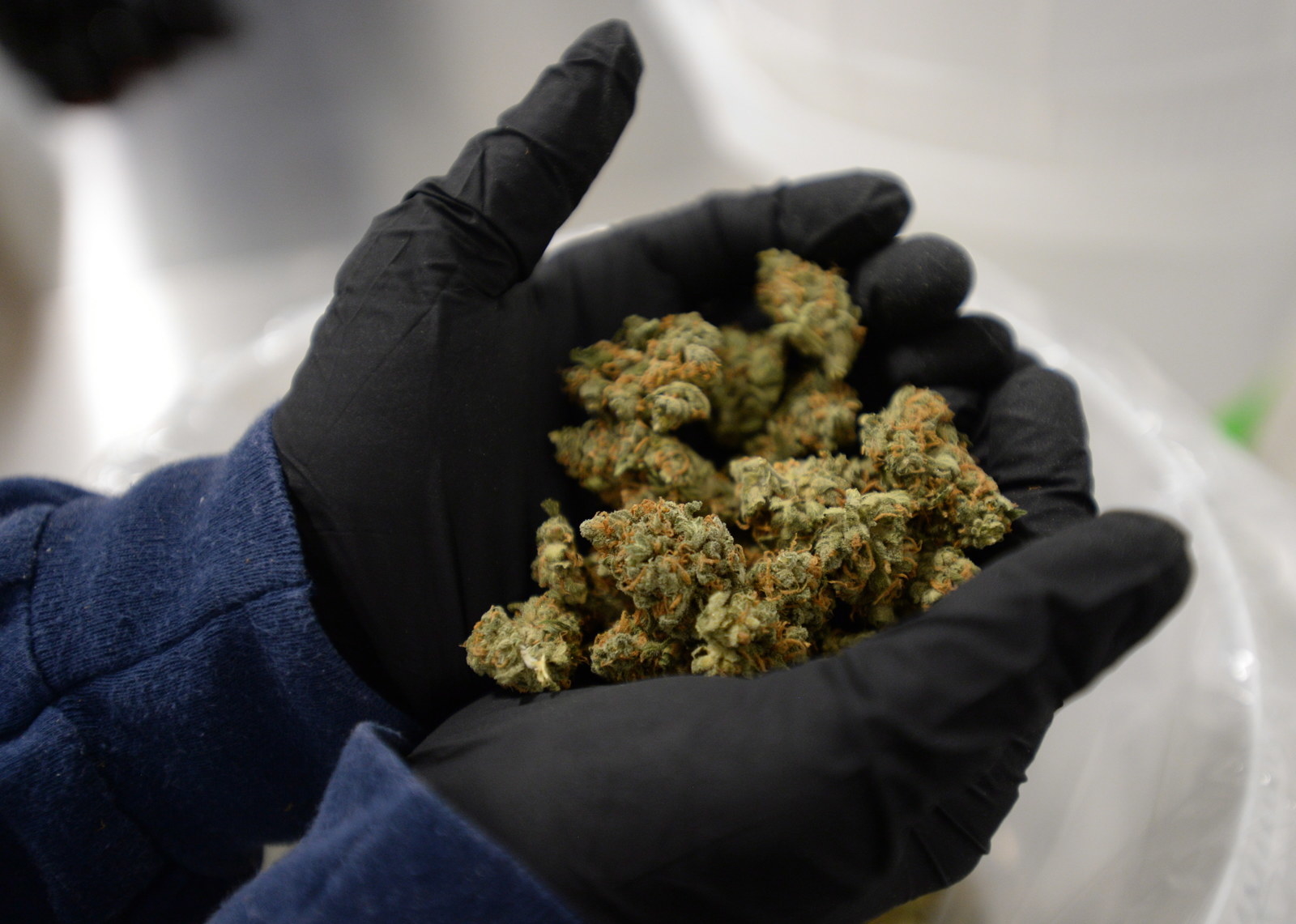
As big weed grows in Canada, it’s increasingly looking to take over the world.
Canadian mary jane is showing up in Germany, Australia, Chile, and a raft of other countries worldwide who have given the green light to medical marijuana. At the rate things are going, Canadian weed will soon be unavoidable.
Canada’s medical marijuana system dates back to 2001, but the system devised by Ottawa was mostly geared towards small-scale cultivation by individuals. It wasn’t until 2014 that the federal government set up a regulation system to allow companies to start growing and selling the drug.
Two of the big licensed producers out of the gate were Tilray and Tweed.
Tweed grew out of a former Herhsey’s Chocolate factory in rural Ontario to become one of the largest marijuana companies in the world. It was the first pot company to openly trade on the Toronto Stock Exchange (its ticker symbol is WEED) and has a market cap of over $2 billion.

In June, Tweed’s parent company acquired Spektrum Cannabis, a German company that distributes medical marijuana to some 400 pharmacies across the country. Beyond Germany, Tweed is now exporting to Australia and Brazil as well. As of August, the company had sold some 69,000 grams of weed world-wide. That number might be low, but the company expects its about to grow exponentially. (As of the end of June, 2014, Canada had less than 8,000 medical marijuana patients. As of this past June, it had more than 200,000.)
“With cannabis continuing to emerge from the shadows, many countries are looking to Canada,” reports security filings from Canopy Growth, which owns Tweed.
Tilray, which is backed by a significant investment from U.S. investment fund Privateer Holdings, is also aggressively courting Europe. Last month, they announced a $29 million (CAD) European facility to grow and package their marijuana in Portugal. They’ve also aggressively targeted the German market, after the Bundestag voted unanimously to approve the sale of medical marijuana in March. The company expects it will break into five more European countries by the end of the year.
Speaking to iPolitics.ca earlier this month, Tilray President Brendan Kennedy pointed out that not only is Canadian industry experienced in growing and selling pot, it's one of the only countries where exporting marijuana is legal.
“If we were in any other industry, Canadians would be celebrating the fact that there’s global demand for our products," Kennedy told the news site.
It definitely helps Canadian industry that they're all gearing up for a big date next summer.
Legalization is set to come into effect in Canada by next July — the first national government in the world to approval recreational sale — and those pot companies are already scrambling to get a piece of the marijuana pie. Billions of dollars in revenue is set to be divvied up between the 70-odd licensed producers who are currently operating.
But many producers privately complain that Canadian regulators are overbearing. Beyond the dizzying level of security and agricultural rules and regulations around growing the marijuana itself, licensed producers must currently seek government approval for every single export deal it signs with a foreign government.

While Canada’s laws may not encourage exports, it does not exactly discourage them, either. That has an array of Canadian-based companies looking worldwide to try and anticipate where the ball is going.
Germany is a prime target. While their medical program is brand new, there’s long been a conversation about full-on legalization on the horizon, with Berlin already running a sort-of-kind-of legalization program for the past year. Of particular interest to would-be exporters is the price: Medical marijuana in Germany can go for as high as 20 EUR per gram ($30 CAD). In Canada, the average is $9 to $10.
Portugal is a another target, as they decriminalized possession of all drugs in 2001 (yes, all of them), but it remains illegal to grow and sell marijuana. Companies setting up medicinal businesses there are no doubt banking that the country’s liberal tendencies will eventually lead to a recreational market.
At the moment, Canada has no real competition. The Netherlands has struck some deals with neighboring countries for cannabis exports, but it has just a single player in the country: Bedrocan. (They also run a Canadian arm, which is owned by Canopy Growth, Tweed's parent company.)
Then there is, of course, the United States. While industry is actively champing at the bit to break into just about any foreign state it can find, few are optimistic about America.

Eight states (and D.C.) have forged ahead with full legalization, while a dozen more have some form of medical marijuana programs. One of the biggest barriers for those states is supply.
In states like Washington and Colorado, it’s small-scale farms that are trying to supply a quickly-expanding recreational market. But supply issues have already dogged those states. Nevada Governor Brian Sandoval actually declared a state of emergency in July after pot shop cupboards ran bare.
But even with those growing pains, there appears to be little appetite in D.C. to loosen restrictions on foreign investment.
In Canada, the Toronto Stock Exchange has warned any listed marijuana company to steer clear of trying to start operations in the United States — even in those states where it is legal — as they would technically be in violation of federal law. That hasn't stopped one company, Aphria, from making million-dollar investments in Florida and Arizona. Most other Canadian marijuana companies have been too risk-adverse to even try.
Even without the United States, there is plenty of opportunities for Canadian companies. Many expect that companies that may get started over the next few years will simply be unable to catch up with the corporate weed giants scattered throughout Canada.
